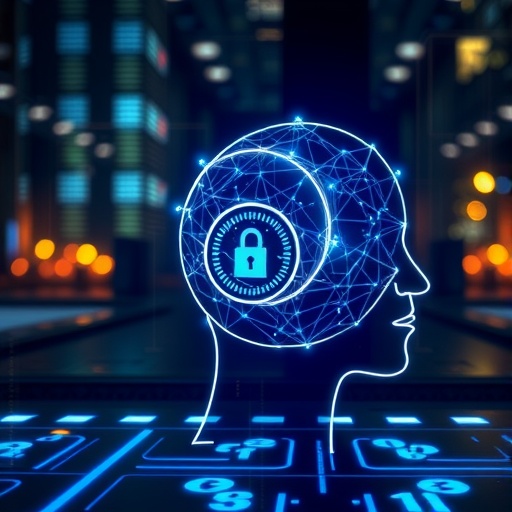A groundbreaking development in artificial intelligence has emerged from the University of California, Riverside (UCR), where a team of researchers has pioneered a method that allows AI models to “forget” specific private or copyrighted information without requiring access to the original training data. This significant technological advancement addresses the critical issue of data privacy and intellectual property rights in the age of AI, where vast datasets are typically employed to train machine learning systems. The researchers’ approach is particularly timely, especially as the technology landscape faces increasing scrutiny regarding privacy laws and compliance requirements.
Described in their paper presented at the International Conference on Machine Learning held in Vancouver, Canada, this innovative technique has the potential to transform how AI models manage sensitive information. The methodology, termed “source-free certified unlearning,” allows AI developers to effectively remove targeted pieces of information from a trained model. The implications of this process are profound: no longer do developers need to retain extensive datasets for retraining. Instead, they can utilize a surrogate dataset that statistically mimics the original data, thus enhancing the capability to erase specific information while keeping the AI’s overall functionality intact.
One of the primary challenges that the research team aimed to tackle was ensuring that once the private or copyrighted information was removed, it could not be reconstructed or retrieved in any form. Achieving this required the scientists to make numerous adjustments to model parameters, along with integrating carefully calibrated random noise into the model’s operation. Their results indicate that the method is not only highly effective in safeguarding privacy but also is considerably less resource-intensive than traditional methods, which often require a complete retraining of the model.
The lead author of the study, Ümit Yiğit Başaran, emphasized the practical implications of their research. He remarked that in real-world scenarios, accessing the original data is frequently an unrealistic expectation. Their framework addresses this gap by offering a feasible solution that enables AI systems to comply with evolving legal frameworks without compromising their effectiveness. As businesses and organizations increasingly seek to align with regulations such as the European Union’s General Data Protection Regulation (GDPR) and California’s Consumer Privacy Act, the need for reliable mechanisms to manage data privacy becomes ever more critical.
Moreover, this advancement comes amidst significant legal disputes in the AI sector, such as The New York Times’ lawsuit against OpenAI and Microsoft over the unauthorized use of copyrighted articles to train generative models. Such controversies further highlight the pressing need for tools that can mitigate the risks associated with proprietary information being embedded in AI outputs. With this new method, entities can proactively ensure that their data is effectively segregated from AI operations, minimizing the risk of inadvertent breaches of confidentiality.
The framework designed by the UCR team enhances an existing concept in AI optimization, allowing for approximate simulations of how a model would alter if it were retrained from the ground up. However, the researchers have refined this concept by integrating a novel noise-calibration mechanism that adjusts for the discrepancies often observed between original and surrogate datasets. This meticulous improvement leads to a process that not only addresses the challenge of information erasure but also contributes to maintaining the performance integrity of the AI model itself.
Validation studies carried out by the researchers involved both synthetic and real-world datasets, yielding privacy guarantees that rival those provided by more traditional retraining approaches, yet with the added benefits of reduced computational costs. The work done at UCR illustrates a critical leap towards making AI models more accountable and ethically sound in their operation, thus fostering greater trust among users and stakeholders alike.
Furthermore, there are hopes that this technique can be scaled to tackle more complex AI systems as the research continues. The scientists involved, including professors Amit Roy-Chowdhury and Başak Güler, posit that their foundational work could serve as the basis for future innovations in privacy-preserving AI technologies, potentially paving the way for broader applicability across various sectors, including media outlets, healthcare institutions, and beyond.
The researchers have set their sights on refining their method further, aspiring to extend its applicability to encompass more sophisticated models. Their objective is to cultivate tools and resources that will make this groundbreaking technology proliferate throughout the global AI development community. Such efforts would empower developers to implement rigorous privacy controls, ensuring that individuals have the ability to manage the presence of their personal or copyrighted content within AI systems assertively.
In summary, UCR’s significant contributions to the field of AI and data privacy solidify it as a leading hub for forward-thinking research. With ongoing advancements poised to reshape the ethical landscape of artificial intelligence, this breakthrough establishes a precedent for how technology can evolve to reflect societal values in a rapidly changing digital environment. The implications for the future of privacy in AI are immense, as these innovations signal a paradigm shift towards responsible AI that prioritizes the protection of individual rights and intellectual property.
Subject of Research: Not applicable
Article Title: A Certified Unlearning Approach without Access to Source Data
News Publication Date: 6-Jun-2025
Web References: Not applicable
References: Not applicable
Image Credits: UC Riverside




